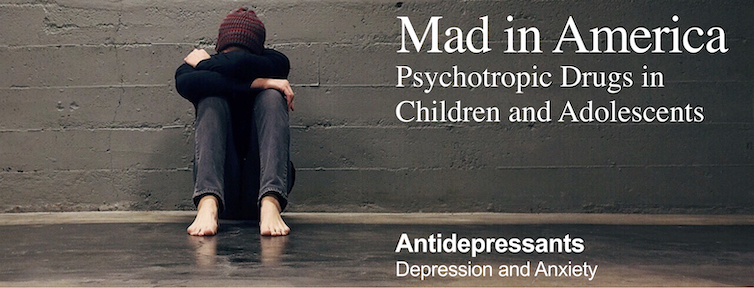This review provides the following:
- information about the diagnosis of depression in children and adolescents
- information about how antidepressants act on the brain
- a review of the safety and efficacy of antidepressants in children and adolescents
- a review of clinical care guidelines for treating adolescent depression
Abstract
In general, clinical studies have not shown that antidepressants are more effective than placebo as a treatment for pediatric depression (although the FDA has approved five antidepressants for treating various pediatric disorders.) These medications may cause a broad range of physical, emotional, and psychiatric adverse effects. They increase the risk of suicidal events and conversion to bipolar disorder. They may induce a chronic dysphoria over the long-term, and children and adolescents may suffer “mild to moderate to severe” withdrawal symptoms when quitting the medication. Teenagers who are prescribed SSRIs for longer periods of time may suffer from “persistent sexual dysfunction” even after withdrawing from the medication.

